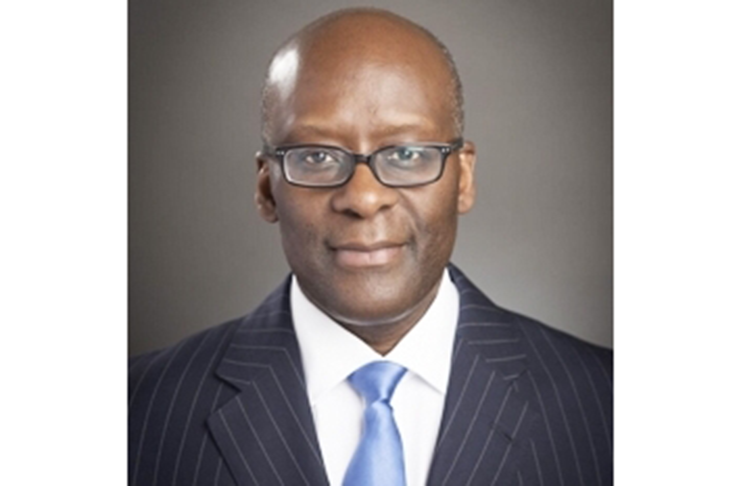Queen’s Counsel, Dr. Richard Wilson
July 5 2020
– UK Professor says decision of the Court of Appeal is final
By Svetlana Marshall
THE Caribbean Court of Justice (CCJ) ought to reject the People’s Progressive Party Civic’s (PPP/C’s) appeal on the grounds that it has no jurisdiction, Queen’s Counsel, Dr. Richard Wilson said, while explaining that Article 177 (4) of the Constitution grants the Court of Appeal exclusive jurisdiction to interpret the Constitution with respect to the election of a President, and any decision made there under is final.
Dr. Wilson, a visiting Professor of Law at the Coventry University in United Kingdom, offered his legal opinion on the case – Irfaan Ali and Bharrat Jagdeo v. Deslyn David and the Chief Elections Officer and others – in a document seen by the Guyana Chronicle.
Ali and Jagdeo, through their battery of lawyers led by Trinidad’s Senior Counsel, Douglas Mendes, are asking the CCJ to set aside a decision of the Court of Appeal that the words “more votes are cast” in Article 177 (2) (b) should be interpreted to mean “more valid votes are asked.” But while the Court of Appeal relied on Article 177 (4) to rule in the case brought by David, Jagdeo and Ali, through their legal team, are contending that Court of Appeal did not make a decision under Article 177 (4) because it had no jurisdiction to do so.
But in the document seen by the Guyana Chronicle, Dr. Wilson contended that Ali and Jagdeo are wrong. “As a matter of construction of the Constitution, the Court of Appeal plainly had original and exclusive jurisdiction to determine the meaning of the words “if more votes are cast” as provided in Article 177 (2) (b),” the professor said.
In justifying his position, the Queen’s Counsel drew distinction between Article 163 and Article 177 (4), and in doing so, noted that the ‘plain meaning rule’ ought to be applied by a court construing legislative provisions where there is nothing to modify, alter or qualify those provisions. Notably, the Constitution under Article 163 gives the High Court exclusive jurisdiction to determine any question regarding the qualification for election as a member of the National Assembly and equally important, whether an election was lawfully conducted or its result affected by any unlawful act or omission. No mention, Dr. Wilson pointed out, was made on the election of a President.
“…conspicuous by its absence in Article 163 is any mention of questions dealing with the interpretation of the Constitution relating to an election of [a] President. Nor is there any provision that expressly grants the High Court jurisdiction in relation to the interpretation of the Constitution on any such question,” Dr. Wilson reasoned.
Unlike Article 163, the Law Professor said clear mention was made of the election of the President in Article 177. In fact, there are four Articles in the Constitution – 91, 95 (3), 177 and 183 (3) (c), that touch on the issue of an election of a President, however, only Article 177 (4), provides for the determination of any question relating to the validity of an election of a President, in so far as that question depends upon an interpretation of the Constitution.
“The silence in Article 163 on determination of any question as to the validity of an election of a President in so far as that question depends on the interpretation of the Constitution; the express provision in Article 177 (4) mandating the exclusive jurisdiction of the Court of Appeal to hear and determine such questions; and the absence of any provision elsewhere in the Constitution that purports to deal with the interpretation of the Constitution in relation to the validity of an election of a President,” Dr. Wilson said cannot be ignored.
He added: “It is reasonable to conclude that the legislative intention must have been that the Court of Appeal, and not the High Court, would have exclusive jurisdiction on all such questions pursuant to Article 177 (4).”
Noting that the Constitution must be viewed as whole, the professor said that both Articles 163 and 177 are subject to the plain meaning rule of statutory interpretation. He iterated that under Article 177 (4), the Court of Appeal has exclusive jurisdiction to hear and determine questions pertaining to the validity of an election of a President in so far as that question depends on the interpretation of the Constitution and not the High Court.
He submitted that should the Court of Appeal’s jurisdiction be removed, there would be gaps in the Constitution. “Consequently, [a] for it to be held that the Court of Appeal had no jurisdiction to hear the originating application as to the interpretation of the words “of more votes are cast” in Article 177 (2) (b), where [b] it is clear that the High Court does not have such jurisdiction under Article 163, would [c] create a lacunae in the Constitution. That clearly, cannot have been the legislative intention,” Dr. Wilson reasoned.
He posited, in his opinion piece, that the court, in interpreting the legislation, is duty bound to give a legislation a meaning that would render the legislation effective.
In offering his legal opinion, in the document, the Queen’s Counsel endorsed the arguments submitted by Trinidad and Tobago’s Senior Counsel Reginald Armour, who is representing the A Partnership for National Unity + Alliance For Change (APNU+AFC) Representative, Joseph Harmon. Armour, last Wednesday, told the court that the supremacy of the Constitution must be respected even as he maintained that the decision of the Court of Appeal under Article 177 (4) is final, and therefore, cannot be appealed.

